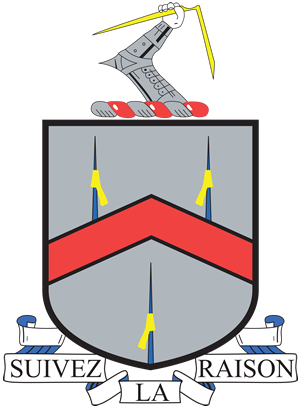Preparation
Revision Advice
There are many different opinions about how revision for exams should be undertaken. All would agree that there is a period of learning work some months in advance of the exam coupled with practicing as many questions as possible. In the days just before each exam “last minute revision” is then done in which all your work is quickly read through to remind you of what you have already spent time learning.
When revising, set a regular time to one side. Make sure you are comfortable and have a good light to revise by. Some people swear by revising to music, others in silence – you hopefully know what works for you by now. Build regular rest breaks into your work – 50 minutes work, 10 minutes rest would be good. Get up and walk about so that your eyes can focus on distant objects for a change – go and make a drink and keep your liquid intake up. Don’t work continuously over weekends or when you are on study leave – have a day off if necessary and don’t work more than three three-hour shifts in any one day.
Revise using all the facilities at your disposal. Your notes and a specification (syllabus) will give you a good idea of what you should be learning. Past paper questions help further and give you an idea of the level of answer required. Revision books will give you a good all-round knowledge of the very basics whilst textbooks will give you a greater understanding. Use textbooks wisely as they contain background information that you do not need to learn and they may be covering the specifications of other Examining Boards too.
There are many sites devoted to particular subjects that may help you with revision. Take care that you use them wisely as a part of a structured revision program. Don’t use them simply because it’s an excuse to go on line. When you visit a site – can you trust it? Try to stick with reliable sites chosen by the staff or those that are widely recognised such as the BBC.
 |
 |
Books
You should find that your notes, exam papers and the textbooks that you are issued with are sufficient. However, if you are struggling to sort out the basic information from some of the in depth work and are losing confidence then try a good revision guide. These often present the information in a very concise form for simple fact learning exercises. Once you have re-built your confidence you may be able to leave these books behind. These days revision books are quite closely linked in with particular specifications (syllabuses) so make sure you know which Exam Board your exam is with and which version you are following (often A or B).
Specifications
The specification or syllabus for a subject provides a rough guide as to what material should be taught at a particular level. A teacher has a huge amount of experience in interpreting these and therefore you must be careful that you do not read too much into any of the statements. Some subject teachers may already have supplied a specification to you; others regard it as not being useful or perhaps even a hindrance! Copies can be obtained from Exam Boards either by ordering or by downloading from their sites.
Exam Boards
We use four exam boards:
AQA
Pearson (Edexcel)
OCR
WJEC (Eduqas)
Their websites contain useful material, but any contact with them concerning the exams should be made through the school.
KS3 |
GCSE |
GCE |
| English | Art (AQA) | Art (AQA) |
| Maths | Biology (AQA) | Biology (AQA) |
| Science | Chemistry (AQA) | Chemistry (AQA) |
| Art & Design | Computing (OCR) | Design & Technology (OCR) |
| Design & Technology | Design & Technology (AQA) | Economics (AQA) |
| Geography | English Language (AQA) | English Language (OCR) |
| History | English Literature (AQA) | English Literature (OCR) |
| Computing | Food & Nutrition (WJEC) | French (AQA) |
| MFL | French (AQA) | Geography (AQA) |
| Music | Geography (AQA) | German (AQA) |
| P.E. | German (AQA) | Computing (OCR) |
| Religious Studies | History (Pearson Edexcel) | History (Pearson Edexcel) |
| Latin (WJEC) | Maths (Pearson Edexcel) | |
| Maths (AQA) | Music (AQA) | |
| Music (Pearson Edexcel) | P.E. (OCR) | |
| P.E. (AQA) | Physics (AQA) | |
| Physics (AQA) | Politics (AQA) | |
| Religious Studies (OCR) | Psychology (AQA) | |
| Religious Studies (OCR) | ||
| Extended Project (Pearson Edexcel) |
Examination Guidance
The exams office team are responsible for all matters related to the external examinations, from submitting entries, to dealing with results once they are released. We have put together an exams booklet, which brings together all the information students will need. If you have any queries, please contact us at exams@ermysteds.uk.
JCQ information for candidates can be found via the links below:
1- Preparing to sit your exams
2- Warning to candidates
3- Written exams
4- On screen tests
5- Non exam assessments
6- Coursework
7- Unauthorised items
8- Social media
9- Privacy notice
Exam Policies
If you would like to view any of the appendices to the Exam Policy, please contact the Exam Office.
After the Examinations
FAQs
1. Publication dates for results
| GCE Summer 2024 | Thursday 15 August 2024 |
| GCSE Summer 2024 | Thursday 22 August 2024 |
2. At what time can I collect my results?
Results will be emailed to pupils between 8:00 – 8:30 am on results day.
3. Can I phone in for results or send a friend?
The results are confidential and it is regretted that we cannot give details out over the telephone. Please do not ring the office unless it is urgent. For the same reasons of confidentiality, we cannot allow another person to take results away on behalf of a pupil without prior written consent from the pupil.
4. What happens if my results are not good enough?
All pupils will be expected to confirm (to the best of their knowledge) their future destinations.
Every year there are pupils who do not obtain the summer results they were expecting. For some pupils this may be a shortfall for re-entry into Ermysted’s whilst for others it may be for a further education course. The Headteacher together with a number of senior staff are always present during results day to give advice. Senior members of staff will already have analysed the results of all pupils and will be expecting to talk to those students who have not reached their targets. Computers will be available for pupils to use the internet to access any appropriate information.
5. Can I re-sit a paper?
At GCSE level, Maths and English are essential for higher education. In order to embark on a sixth form course at Ermysted’s you will be asked to re-take your qualification if you failed to achieve at least a grade 5.
6. When do I get my certificates?
Once you have completed your exams, certificates will be sent to School. We will collect together the certificates from the different Exam Boards. Certificates will be retained until completion of your studies in Year 13. In the January following your departure from school you will be invited to attend a presentation evening to collect your GCSE and A Level certificates. Please ensure the exams office have your up to date contact details. If you are unable to attend the evening and collect your certificates, please contact the Exams Officer to make alternative arrangements. Certificates not collected within 12 months from the date of the presentation evening will be destroyed.
